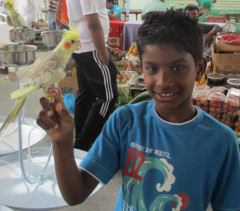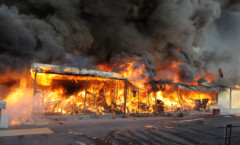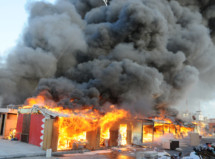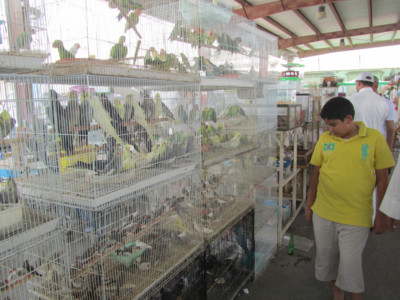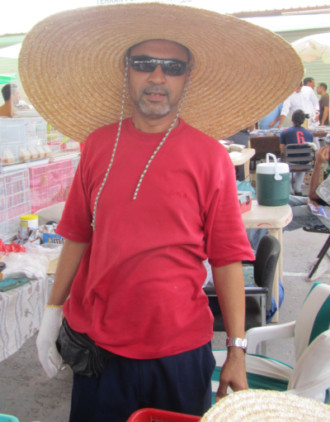
Manama: Duaij Darweesh looked at the desolate expanse in front of him and could hardly hold back the hot tears burning his eyes.
The empty space where hundreds of small shops once stood was too much to bear for the photographer who had been a regular visitor of the traditional souq in Eisa Town.
Souq Al Magasees was more than a place where people sold and bought old and new items that ranged from birds to kitchenware, from books to CDs, from large radios to compact transistors. Every Friday and Saturday, the open-air flea market was filled with old and young people, men and women driven by the high prospect of making outstanding bargains. Most went home elated with the deals they achieved.
Souq Al Magasees was the box that created magic and empowered everyone to have bold dreams and to live them fully. But one day, the wondrous place of dreams and fun vanished, ravaged by the largest fire in Bahrain’s modern history.
“All the great excitement that I felt whenever I went to Souq Al Magasees is now gone,” Duaij said. “I only have memories of the place. Seeing it as it is today really hurts me. My sons and I grew up on the magic world of Souq Al Magasees every Friday and Saturday, and now the fun is gone,” he said. His son Mohammad was walking with him to a nearby supermarket. He too recalled the open-air market with great fondness. “Last time I was at the souq, I wanted to buy some books,” he said. “The books that I saw on the floor were at least double my age,” said the 15-year-old student slowly sipping his drink.
“The old Bahraini man who was selling them looked at ease in the middle of the stacks of geography, history and social studies books in Arabic and in English. For me, it was a veritable treasure trove, and I love being with books and with book lovers. I am always happy when someone tells me that he had been looking for a specific book, but found it in Al Magasees after spending so much time searching bookshops downtown Manama or in shopping complexes,” he said, flashing a smile.
For thousands of Bahraini nationals, residents and foreigners in Bahrain, Al Magasees was the place to find the out-of-print paperback they had been searching for, sometimes for years. Like Duaij and his son, they regularly braved the hot weather, humidity and other demanding weather elements to try their luck in the rows of odds and ends and revelled in their findings.
The souq was launched in the middle of the 20th century when people met on Friday, the only day off then, to sell household items to make money or to create new space in their homes. Women had used the place to sell old clothes that were often readily bought by foreigners with limited financial income. Used and new furniture, shoes, radios, television sets and home appliances were particularly popular among families while children loved watching and nagging their parents to buy the colourful birds sold in ornate cages.
The souq was initially set up in Manama, but was moved to Eisa town over phases as it grew in size.
“Some Bahrainis say that it was named Magasees in reference to the people who sold fake or cheap items and cheated their clients,” Duaij said. “However, others contend that it was named after the people who went bankrupt and needed money, forcing themselves to sell some of their household items to solve their temporary financial crisis,” he said, citing his father as the source of the information. For some women, the souq was a golden opportunity to make money.
“This open-air market made life much easier for me as I could make money by selling some items,” she said. Her products included khol (dark eyeliner), ready-made garments for children, make up kits and some toys. “I made sure I established excellent rapports with my clients and trust was the secret word. If an item proved to have a defect, I told the clients to return it or exchange it.”
Abu Anas, a teacher, said that he lived near the souq. “I often found my garage door blocked by vehicles driven by people who came to the souq,” he said. “It was annoying, but I appreciated that this happened only on souq days when the area was overcrowded. I learned to take my car out of the garage in the early morning if I wanted to use it on that day. However, my concern was that there were selling and piling up so many items that could cause a wild fire with dire consequences,” he said as he walked to the nearby mosque for the afternoon prayers.
On July 15, the souq was charred by a massive fire that melted the hearts of thousands of people. Smoke could be seen from kilometres away. The authorities have assured the community that the souq would be recreated and pledged to rebuild it within months. “It is a magic box that should always be there for all of us, young and old,” Duaij said.


